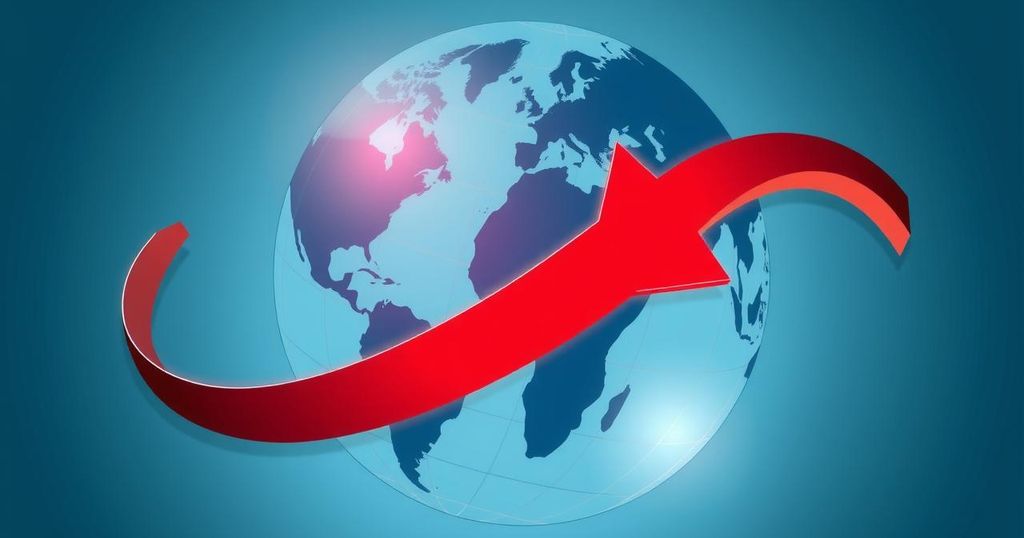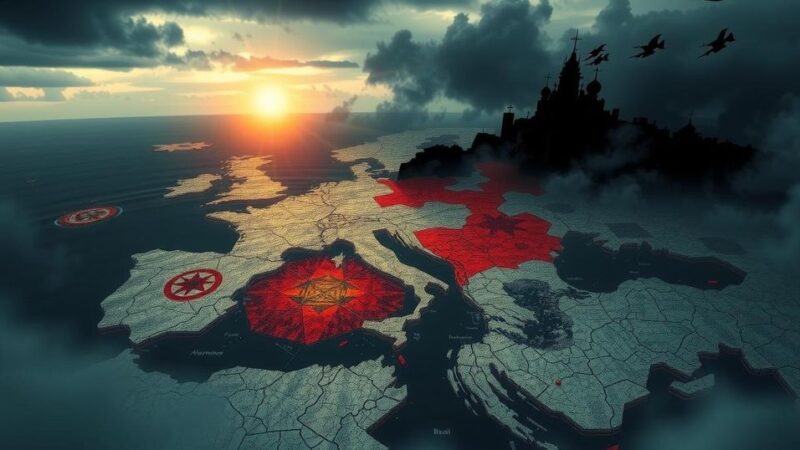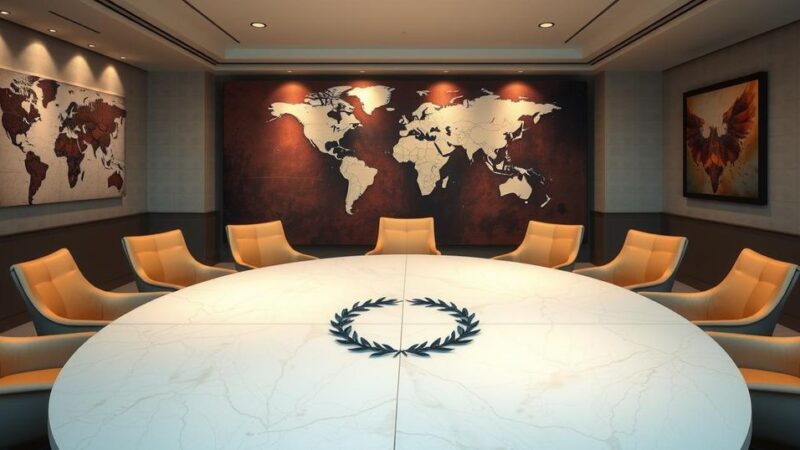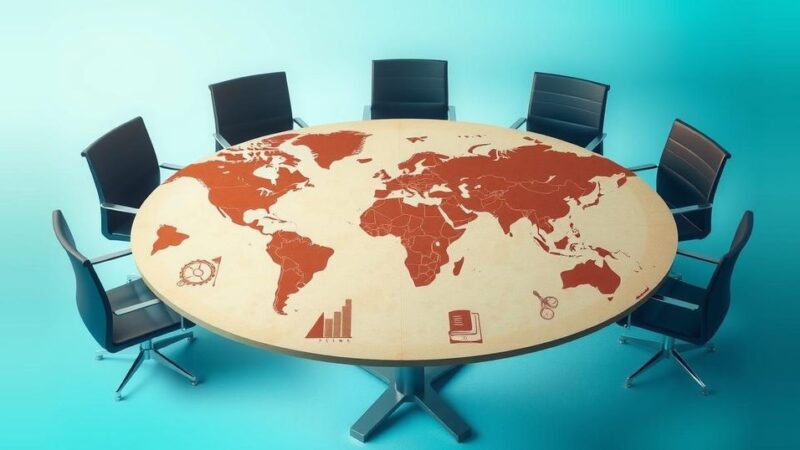President Trump intensifies tariffs amid global tensions, prompting anxiety among NATO allies and affecting international negotiations in Ukraine and the Middle East. In parallel, the nomination of Robert F. Kennedy Jr. and numerous legal challenges complicate the administration’s agenda. Major allies are seeking tariff exemptions while warnings arise regarding the exclusion of Ukraine in diplomatic discussions.
Donald Trump’s administration is intensifying its tariff measures, particularly impacting key economic partners, as reflected in a recent White House visit by Indian Prime Minister Narendra Modi. NATO allies express trepidation concerning U.S. statements, fearing an absent security umbrella from America could drive the EU to redefine its defense strategies independently. Meanwhile, the EU seeks clarity on Trump’s discussions with Russian President Vladimir Putin, emphasizing the need for Ukrainian input in any agreements.
In the Middle East, ceasefire talks between Hamas and Israel appear to be regaining momentum, despite threats from Hamas concerning potential delays due to Israeli actions. Experts caution that these negotiations are precarious, heightened by Trump’s rhetoric about U.S. involvement in Gaza. Calls for worldwide protests against Palestinian displacement add further tension to this volatile situation.
Controversy also surrounds President Trump’s nomination of Robert F. Kennedy Jr. for the Health and Human Services secretary position, amid ongoing scrutiny regarding his public health stance and past anti-vaccine activism. While Kennedy is expected to secure confirmation, his nomination remains under close watch, particularly concerning Senator Mitch McConnell’s position amidst his vaccine advocacy.
The Trump administration currently faces numerous legal challenges, with significant hearings scheduled to address the potential disbandment of the U.S. Agency for International Development and the president’s ban on transgender individuals in the military, both of which have sparked intense debate over constitutional rights.
Ukrainian President Volodymyr Zelenskyy has publicly conveyed his discontent regarding any diplomatic negotiations involving Ukraine that exclude its involvement, stating, “Any bilateral negotiations about Ukraine, not on other topics, but any bilateral talks about Ukraine without us – we will not accept.” Trump’s insistence on strict tariffs has prompted nations like Japan and Australia to seek exemptions, while South Korea is pursuing high-level discussions on tariffs as well.
On social media, President Trump highlighted a promising opportunity for resolving the Ukraine conflict, announcing planned negotiations with both Putin and Zelenskyy. However, European leaders caution that Trump’s approach may marginalize Ukraine, asserting that any successful agreement must include their participation to ensure comprehensive and enforceable outcomes. This situation poses a direct challenge to the established international balance of power, necessitating close observation.
The escalation of tariffs by the Trump administration raises concerns among global allies, particularly within NATO, about existing security guarantees. In parallel, significant developments in the Middle East and pending legal challenges illustrate the complexities of Trump’s policy maneuvering. Furthermore, negotiations excluding Ukraine risk undermining the nation’s sovereignty. As major allies seek tariff exemptions, the broader implications of U.S. foreign policy strategies remain uncertain.
Original Source: www.aljazeera.com






